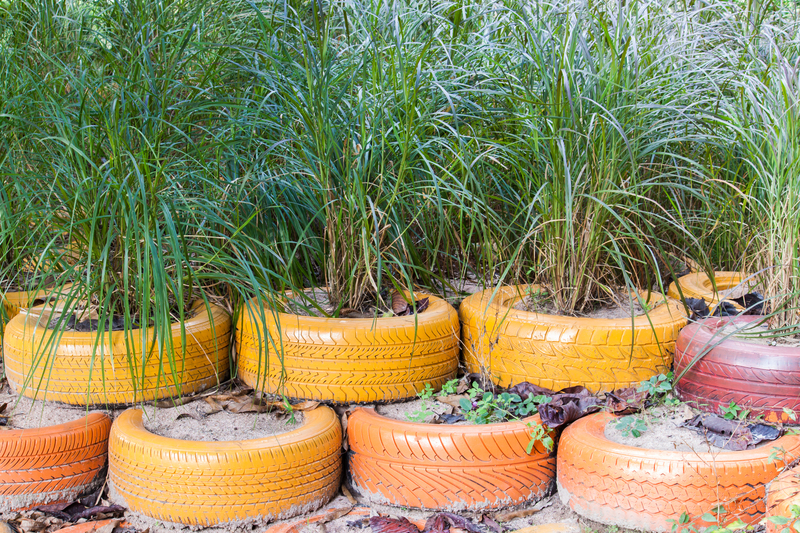Simple Guidelines for Eco-Conscious PPE Waste Management
Personal Protective Equipment (PPE) has been essential in safeguarding public health, especially during global health crises like the COVID-19 pandemic. However, the surge in PPE usage -- from masks and gloves to gowns and face shields -- has also led to significant environmental concerns. Eco-conscious PPE waste management has become a pressing priority for individuals, businesses, and communities worldwide. If you're seeking to combine safety with sustainability, this comprehensive guide offers simple guidelines for eco-conscious PPE waste management suitable for homes, workplaces, and public spaces.

Understanding the Environmental Impact of PPE Waste
PPE waste poses several challenges to our planet. Most disposable PPE items are made from single-use plastics, which are not biodegradable. As a result, improper disposal can lead to:
- Soil and water contamination from microplastics
- Harm to wildlife through ingestion and entanglement
- Increased landfill waste and unsustainable resource consumption
With sustainable PPE waste practices, we can reduce the negative impacts and promote a greener future.
Key Principles for Sustainability in PPE Waste Management
Before diving into detailed strategies, let's outline some core principles for eco-friendly PPE disposal:
- Reduce: Minimize unnecessary use of disposable PPE.
- Reuse: Opt for reusable PPE wherever possible.
- Recycle: Separate PPE waste for specialized recycling streams.
- Educate: Share knowledge of proper disposal practices.
By adhering to these principles, we can make significant progress in establishing eco-conscious PPE waste management systems at individual and organizational levels.
Best Practices for Responsible PPE Waste Management
Below are essential guidelines to follow for eco-conscious PPE waste management in your daily life or organization.
1. Choose Sustainable PPE Products
- Opt for reusable PPE such as washable cloth masks and protective eyewear whenever possible. Reusable products significantly reduce the quantity of PPE waste generated.
- Select biodegradable alternatives. Some companies now offer compostable gloves, biodegradable masks, and PPE made from plant-based materials. These options help decrease reliance on single-use plastics.
- Check certification labels. Look for eco-labels and certifications for sustainable manufacturing practices.
2. Segregate PPE Waste Properly
**Proper separation of PPE waste** from regular recycling and garbage is essential:
- Designate specific bins for used PPE to prevent contamination of other waste streams.
- Label disposal bins clearly to avoid confusion.
- Use foot-operated lids to minimize unnecessary contact and reduce the risk of disease transmission.
Never dispose of used masks or gloves in recycling bins for regular plastics or paper, as they can contaminate recyclables and protect waste handlers.
3. Participate in PPE Recycling Schemes
- Seek out local PPE recycling programs. Some municipalities and private companies offer collection points for used PPE, where it is recycled into new products or converted into energy.
- Take part in manufacturer take-back schemes. Some brands now allow you to return used PPE for safe recycling or processing.
- Encourage workplaces and schools to join PPE recycling initiatives.
4. Reduce Disposable PPE Use When Possible
Embrace these tactics to lessen single-use PPE consumption:
- Assess the necessity before using disposable PPE. Use only when required.
- Switch to reusable PPE wherever health guidelines permit.
- Educate staff and family members about mindful PPE use.
5. Ensure Safe and Hygienic Disposal
Safety remains paramount in eco-conscious PPE waste management:
- Double-bag used PPE if you're disposing of it at home, especially if someone is sick.
- Seal bags tightly and keep them away from children and pets.
- Wash your hands thoroughly after handling used PPE or touching disposal containers.
6. Educate and Encourage Others
Awareness is critical in building eco-friendly PPE waste habits:
- Share information about correct PPE disposal with family members, colleagues, and your community via posters, emails, or briefings.
- Organize training sessions for proper segregation and disposal in workplaces and public buildings.
- Lead by example -- people are more likely to adopt responsible practices when they see others doing the same.
7. Advocate for Sustainable PPE Waste Policies
- Encourage organizations and policymakers to implement guidelines for eco-conscious PPE waste management.
- Support research into biodegradable materials and innovative recycling technologies.
Case Studies and Success Stories
Around the globe, innovative organizations and communities are introducing eco-friendly PPE disposal solutions:
- Hospitals and clinics in some regions are adopting on-site PPE sterilization and recycling, transforming used PPE into construction materials or energy.
- Universities and research centers are piloting reusable PPE designs and sustainable alternatives.
- Public institutions have launched campaigns for responsible PPE waste collection and education, significantly reducing litter and contamination.
Common Mistakes in PPE Waste Disposal and How to Avoid Them
- Putting used PPE in regular recycling bins: This contaminates recyclable materials and puts recycling staff at risk.
- Littering or flushing PPE: Littered masks and gloves often end up in waterways, harming marine life. Flushing PPE can block sewage systems.
- Not reporting overflowing disposal bins: When bins are full, people are more likely to dump PPE irresponsibly.
Always use designated PPE bins and cooperate with local guidelines to ensure safe, environmentally friendly disposal.
Adapting Eco-Conscious PPE Management at Home and Work
For Individuals and Households
- Minimize single-use PPE: Use reusable products like cloth masks when safe and in accordance with guidance.
- Set up a PPE waste station: Create a small, clearly labeled bin for used PPE in your home.
- Seal and dispose of PPE properly: Tie bags securely and dispose of them in accordance with local authority instructions.
- Stay informed: Keep up to date with local rules regarding PPE waste collection and disposal.
For Workplaces and Organizations
- Conduct a waste audit: Assess current PPE usage and disposal habits to pinpoint areas for improvement.
- Provide clear signage: Place posters near disposal sites explaining how and where to dispose of PPE.
- Train staff: Host regular training on health, safety, and eco-conscious PPE waste practices.
- Review suppliers: Opt for vendors that offer reusable, biodegradable, or recyclable PPE products.
By focusing on awareness, clear guidance, and regular reviews, organizations can significantly reduce their PPE waste footprint.
Innovative Solutions and the Future of Sustainable PPE Management
Researchers and companies are exploring groundbreaking ways to make PPE waste management more eco-friendly:
- Biodegradable PPE: New materials such as plant-based polymers offer compostable alternatives.
- PPE-to-energy conversion: Specialized facilities can incinerate PPE safely, generating energy while filtering pollutants.
- PPE recycling technologies: Machines are being developed to sterilize, shred, and repurpose PPE into benches, tiles, and road materials.
Supporting these solutions and adopting eco-conscious PPE management guidelines helps accelerate the transition to a circular, sustainable economy.

Frequently Asked Questions about Eco-Conscious PPE Waste Management
Are all PPE items recyclable?
Not all PPE is recyclable through regular recycling streams due to contamination risks and material types (like mixed plastics). Specialized programs or manufacturer take-back schemes are required. Always follow local guidance on PPE disposal.
Can reusable PPE offer the same protection as single-use items?
Yes, when made to appropriate standards and properly sanitized between uses, reusable PPE can provide effective protection while reducing waste.
Is burning PPE a safe disposal method?
Incineration in specialized, pollution-controlled facilities can be safe. However, open burning is never recommended as it releases harmful toxins into the environment.
How can I encourage my community or workplace to manage PPE waste more sustainably?
Start by educating others, providing resources, and working with management to implement designated PPE bins and training sessions. Sharing success stories and benefits can boost participation and long-term change.
Conclusion: Taking Action for a Cleaner Future
The unprecedented use of personal protective equipment has spotlighted the need for environmentally responsible PPE disposal. By adopting the simple guidelines for eco-conscious PPE waste management outlined above, every individual and organization can make a difference--resulting in less waste, safer communities, and a healthier planet.
Remember: small actions like choosing reusable PPE, segregating waste properly, and advocating for sustainable policies all add up. Together, we can ensure that our commitment to safety also safeguards the environment for generations to come.
Start today and encourage your network to join the movement towards eco-conscientious PPE waste management!